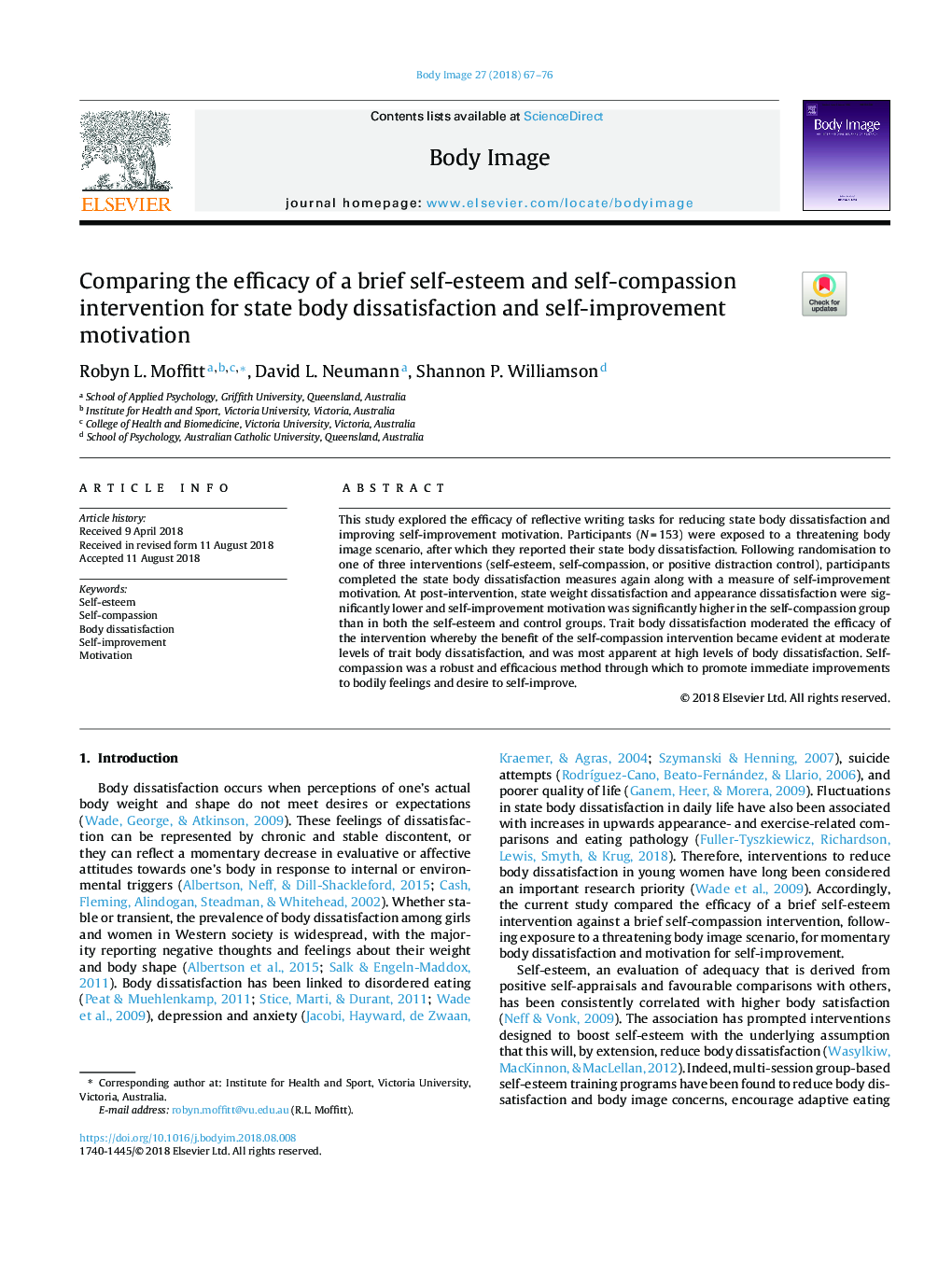| Article ID | Journal | Published Year | Pages | File Type |
|---|---|---|---|---|
| 9952934 | Body Image | 2018 | 10 Pages |
Abstract
This study explored the efficacy of reflective writing tasks for reducing state body dissatisfaction and improving self-improvement motivation. Participants (Nâ=â153) were exposed to a threatening body image scenario, after which they reported their state body dissatisfaction. Following randomisation to one of three interventions (self-esteem, self-compassion, or positive distraction control), participants completed the state body dissatisfaction measures again along with a measure of self-improvement motivation. At post-intervention, state weight dissatisfaction and appearance dissatisfaction were significantly lower and self-improvement motivation was significantly higher in the self-compassion group than in both the self-esteem and control groups. Trait body dissatisfaction moderated the efficacy of the intervention whereby the benefit of the self-compassion intervention became evident at moderate levels of trait body dissatisfaction, and was most apparent at high levels of body dissatisfaction. Self-compassion was a robust and efficacious method through which to promote immediate improvements to bodily feelings and desire to self-improve.
Related Topics
Health Sciences
Medicine and Dentistry
Psychiatry and Mental Health
Authors
Robyn L. Moffitt, David L. Neumann, Shannon P. Williamson,
